Ancient History looks at every aspect of the ancient world: you'll find articles covering politics, society, literature, language, religion, economics, and art - all in one magazine! Like its big brother, Ancient Warfare, Ancient History Magazine is a bi-monthly, 60-page magazine that relies on a thematic approach: each issue is centered around one specific subject. From ancient Egyptian trade and Roman family life to the lost city of Pompeii, there's sure to be something for everyone - all presented in a well-researched but accessible, fun manner.
Ancient History Magazine
PRELIMINARIES
EDITORIAL - UNCHARTED TERRITORY
SERVANTS IN THE PLACE OF TRUTH • Nestled in a small, secluded desert valley in the shadow of the hills of western Thebes – modern-day Luxor – lie the remains of an exceptionally well-preserved walled settlement. Known to its ancient residents simply as ‘the Village’, it is better known today by its Arabic name, Deir el-Medina. For almost the entirety of the New Kingdom period, the village was occupied by the families of the royal necropolis workmen – the ‘servants in the Place of Truth’ – gifted artisans who were charged with the excavation and opulent ornamentation of tombs in the Valleys of the Kings and Queens.
FAKES, FRAUDS, AND FORGERIES • In today’s world, we are inundated with black-market goods. Fake Rolexes, dodgy Ray-Bans, and fake designer handbags can all be bought at a fraction of the cost of the originals, while con artists and scammers prey upon the vulnerable and unsuspecting, using increasingly sophisticated ways to get what they want. Some solace can be found when we look back to ancient Rome. There is plenty of evidence to illustrate that doing one over your fellow citizen, neighbour, or even friend, is a well-established practice stretching back thousands of years. We’re taking a whistle-stop tour of some of those sinister characters, fakes, frauds, and forgeries that plagued the Roman world.
MIGRATION AND COLONIZATION IN THE MEDITERRANEAN BRONZE AGE • How can we understand migration processes in the ancient Mediterranean? Migration probably occurred in the Mediterranean Bronze Age (ca.3000-1200 BC) far more than we realize and took several different forms. However, while the movement of peoples is easy to assume, based on evidence from maritime trade, it is difficult to detect. Colonization, or the purposeful, large-scale movement of people from one place to another, is even more difficult to detect.
THE FIRST GENERATIONS OF GREEK OVERSEAS SETTLEMENTS • The numerous apoikiai founded by Greeks around the shores of the Mediterranean are often best known today for their impressive monumental remains of temples and theatres, built during their most flourishing periods. But these grand cities, like Rome, weren’t built in a day. How did they come to be, and what did they look like during the first decades of their existence?
Mythbusting Hippodamus
ANCIENT GREEK COLONIZATION • Unlike various other famous peoples from antiquity, the ancient Greeks during the Archaic and Classical periods did not build vast territorial empires. Rather, what modern historians call ‘the ancient Greek world’ by the early fourth century BC consisted of a network of some thousand Greek cities, or poleis, spread out over the coastal areas and islands of the Mediterranean and Black Sea.
MAGNA GRAECIA • Two ancient authors can help introduce Magna Graecia. The first is the geographer-historian Strabo, who in his Geography (VI.1.2) mentions a vast movement of people from Greece to the West from the time of the Trojan War. He also coins the Greek expression Megale Hellàs (in Latin Magna Graecia). Strabo’s contemporary Cicero refers to those lands as “today destroyed, but once flourishing” (Laelius on Friendship 13).
Dealing with the locals
GREEKS ON THE NILE • On the...
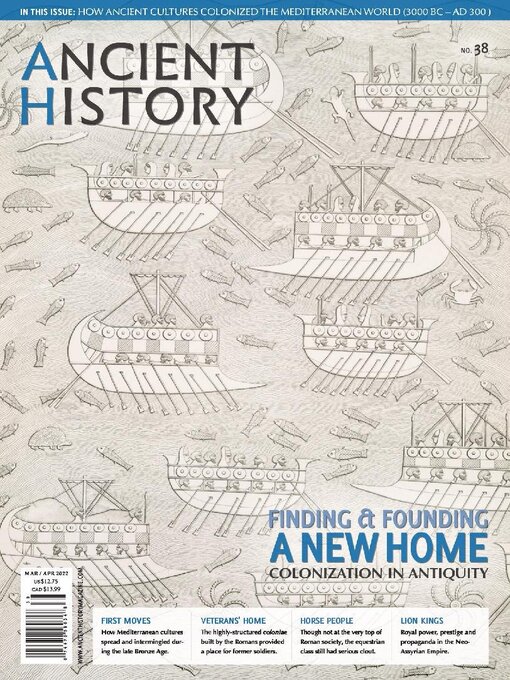
 AH 52
AH 52
 AH 51
AH 51
 AH 50
AH 50
 AH 49
AH 49
 AH 48
AH 48
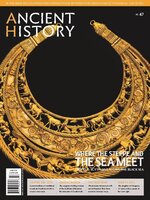 AH 47
AH 47
 AH 46
AH 46
 AH 45
AH 45
 AH 44
AH 44
 AH 43
AH 43
 AH 42
AH 42
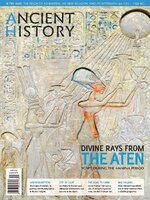 AH 41
AH 41
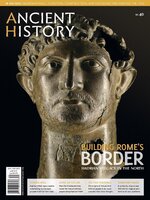 AH 40
AH 40
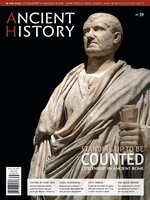 AH 39
AH 39
 AH 38
AH 38
 AH 37
AH 37
 AH 36
AH 36
 AH 35
AH 35
